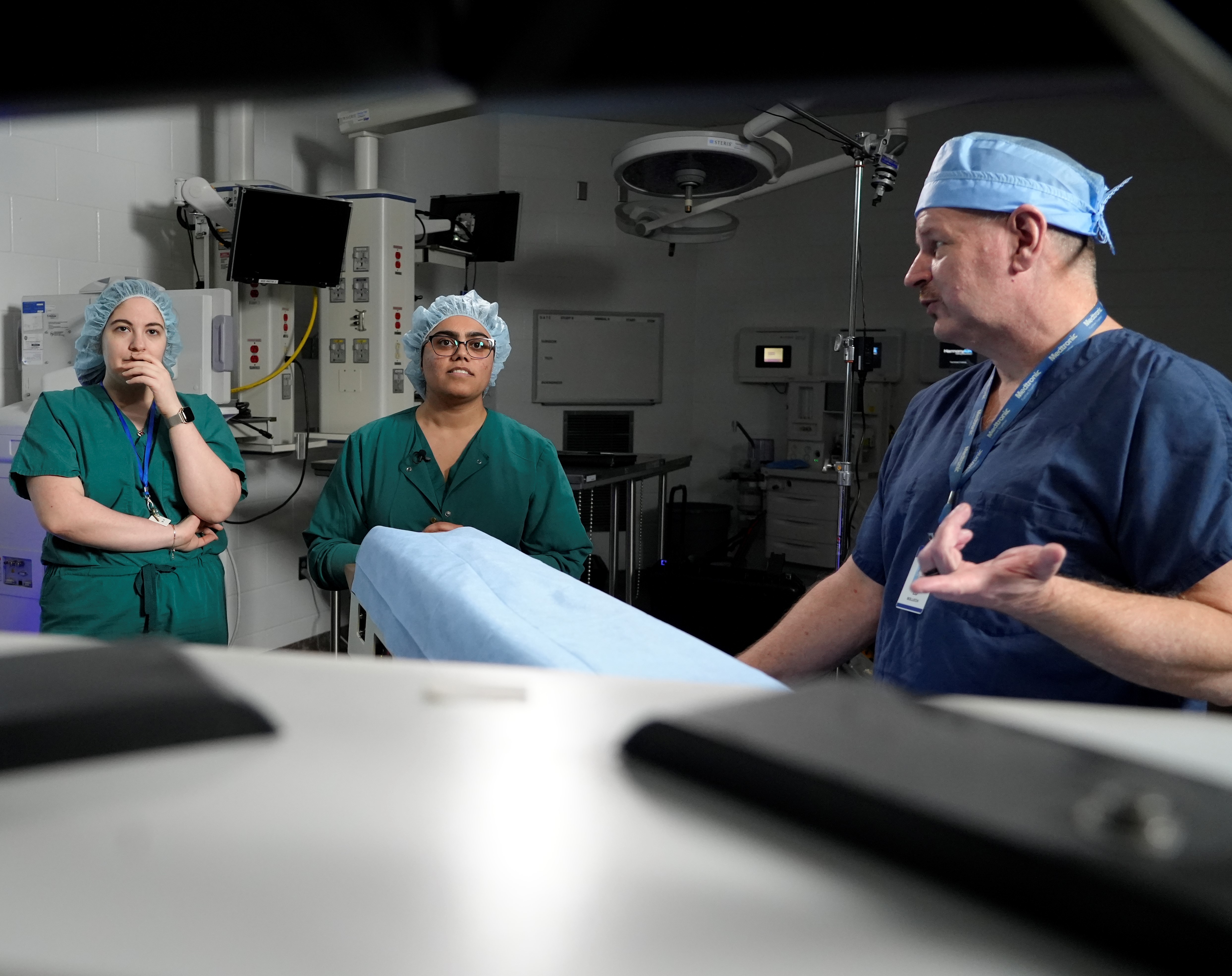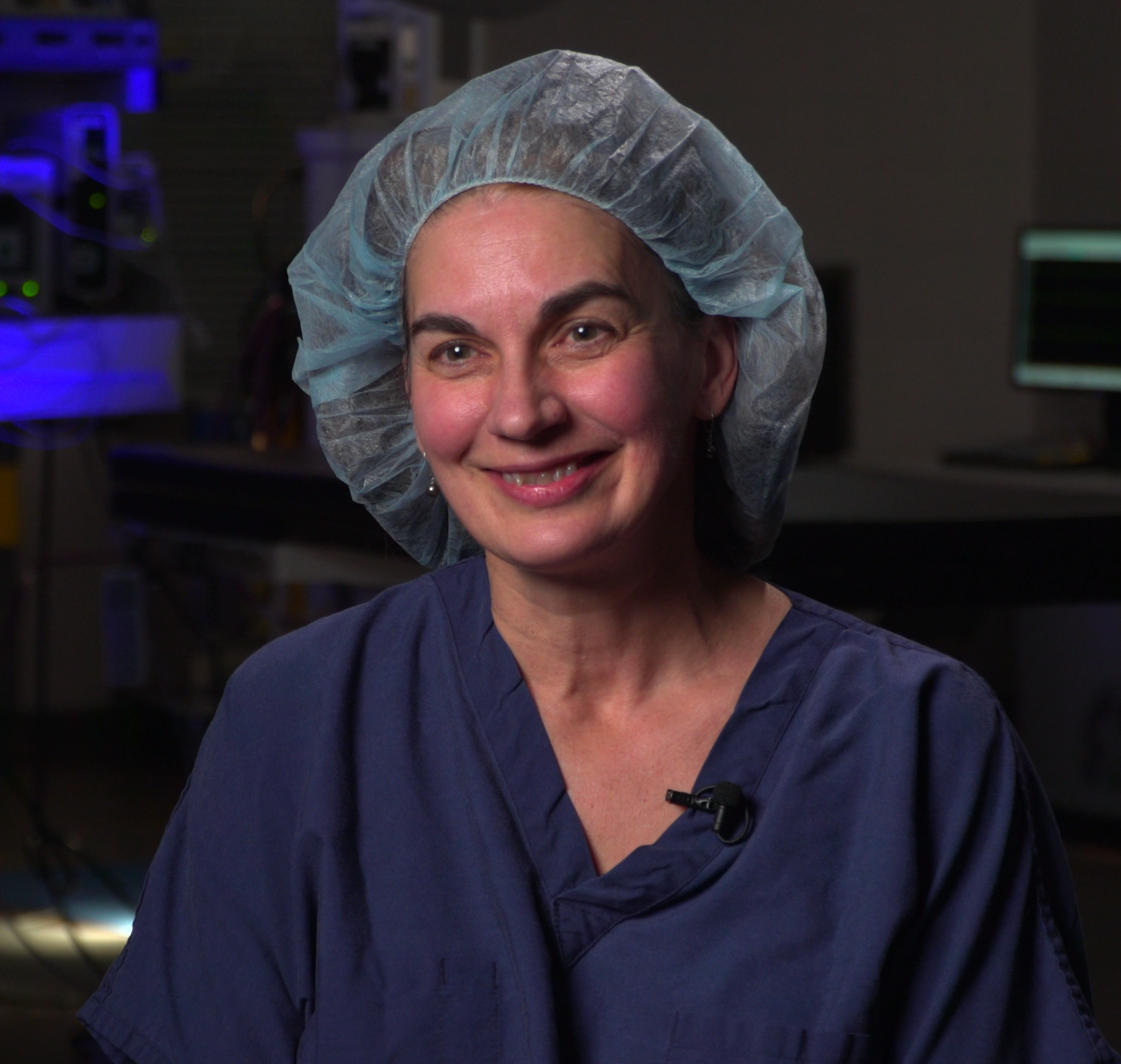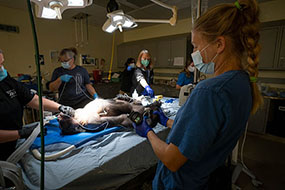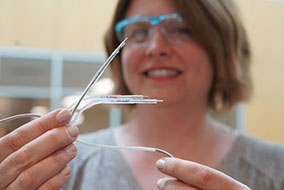Pacemaker technology is helping a growing number of pets
Medtronic shares its pacing technology with veterinary heart doctors.
Pets suffer from some of the same heart problems that humans do. And just like people, pets – especially dogs – benefit from pacemakers.
“It’s surprisingly common for us to see heart problems in pets,” said Sarifa Lakhdhir, a veterinary cardiologist resident from Atlantic Veterinary College (AVC) at the University of Prince Edward Island in Canada. “And as our knowledge grows, we’re able to do more complicated things with pacemakers to help those pets live longer.”
Lakhdhir and Catherine Georges, a veterinary cardiologist resident at the University of Florida, recently spent a week at the Medtronic Physiological Research Lab (PRL). They studied the latest pacemaker technology and implant techniques, and practiced performing implants with a simulator.

“The goal is to get up-to-date on what’s going on in the human world and try to bring as much of that back to help our pet patients as we can,” Georges said.
Medtronic doesn’t have a specific program to train veterinarians, but the company is more than willing to share pacemaker knowledge with students and faculty at veterinary colleges who inquire about it. Veterinary students and residents can even apply for a 2-4 week externship at Medtronic PRL. “It’s the first time I’ve heard about being able to visit any medical device company in person,” Lakhdhir said. “It’s an amazing opportunity.”
“The training that we do with them very closely resembles what we do for human cardiologists,” said Linnea Lentz, a Distinguished Scientist at Medtronic who specializes in pacemaker implants. “As far as handling the leads and programming the devices, it’s all very similar.”

Pets typically don’t suffer heart attacks or clogged arteries like people do, according to Georges. But dogs, for example, suffer abnormal heartbeats in much the same way as humans, and pacemakers are proving effective in treating such conditions.
“We implant 10 to 15 pacemakers a year in dogs, and the number is growing. But most people still don’t know that pacemakers in pets is even an option,” Georges said.
“We’re ages behind compared to the human world,” added Lakhdhir. “But learning about these newer technologies and bringing them to veterinary medicine is an up-coming-field. There’s definitely a high need.”
Pets and people also suffer from other similar heart problems, such as leaking heart valves. Lentz envisions a future in which several human heart technologies, not just pacemakers, help pets live longer. She says that future fits with the Medtronic Mission to alleviate pain, restore health, and extend life.
“Tenet 6 of our Mission is to be good global citizens,” she said. “Human health, animal health and environmental health are all connected. The more we work together and share what we know, the more likely we are to have the best health for all.”
L001-03172023
Related content



